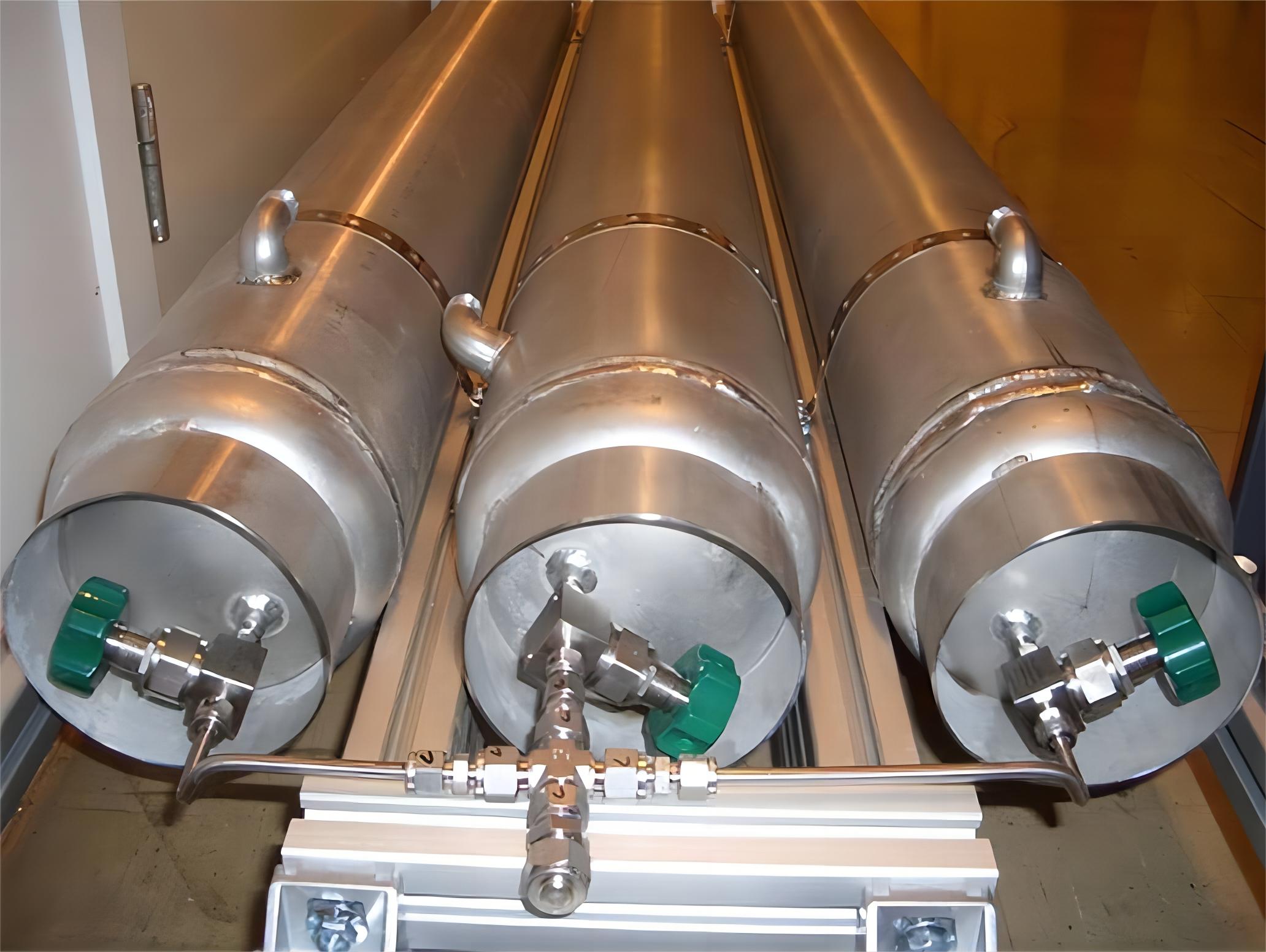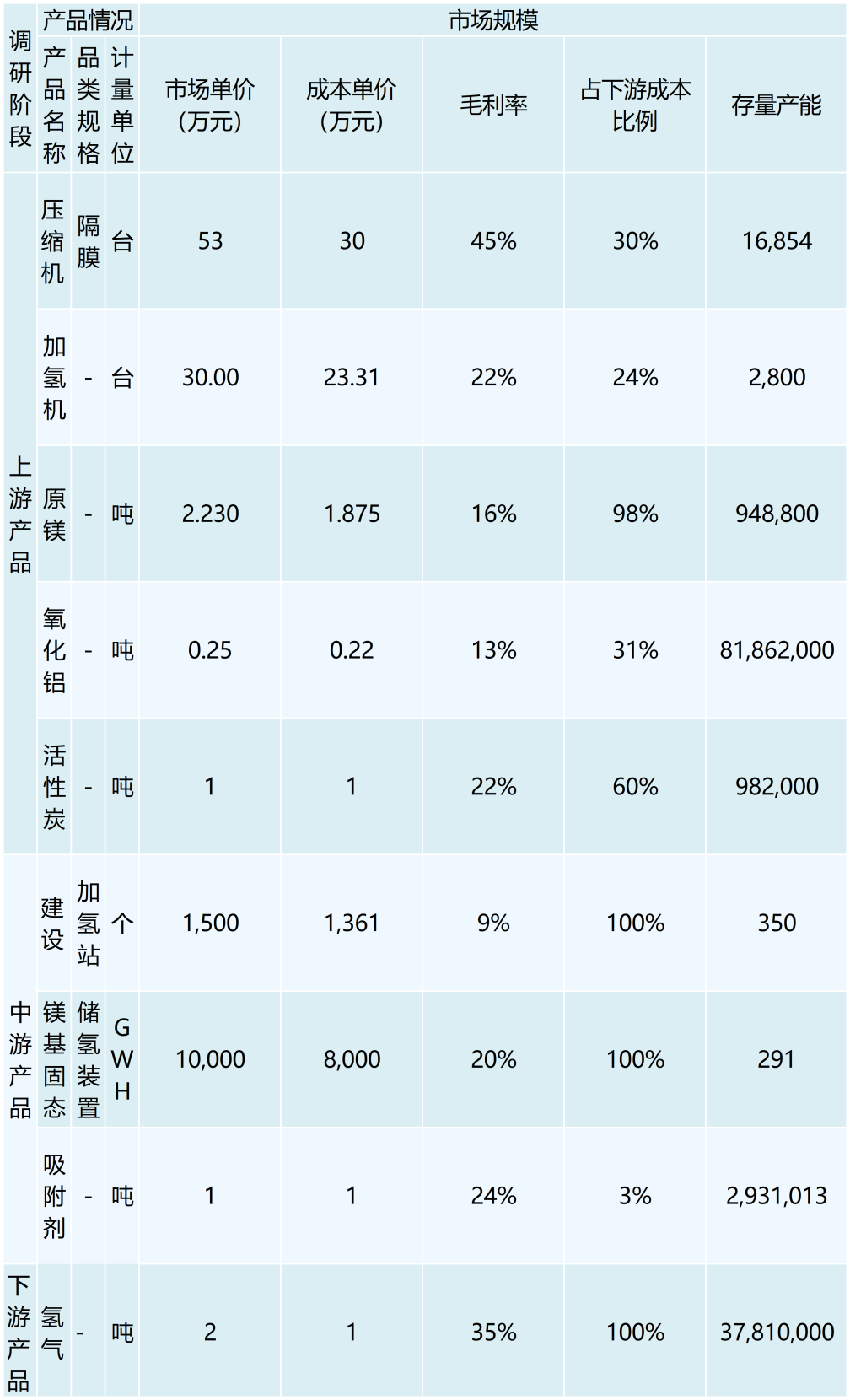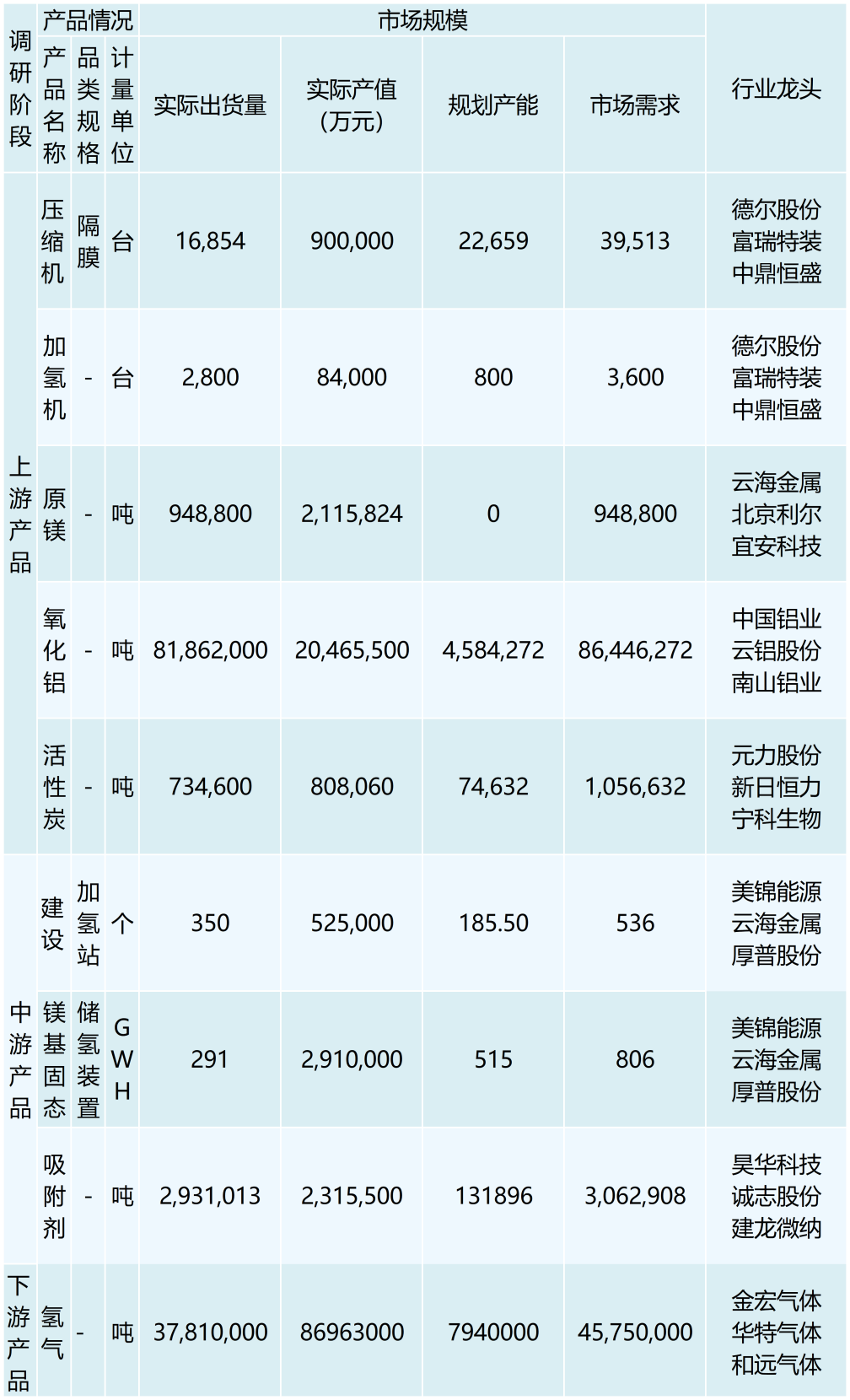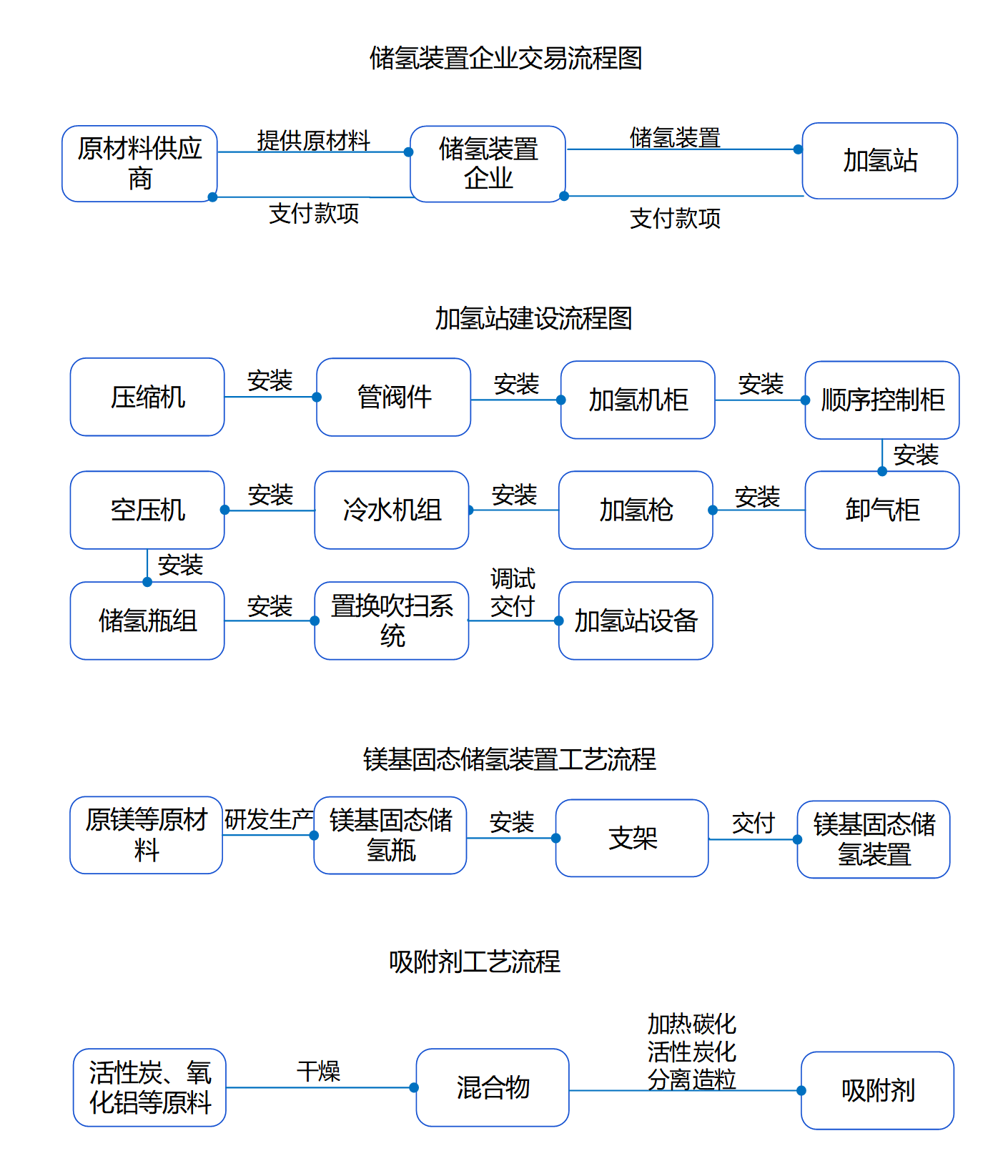
Hydrogen energy is a secondary energy source with abundant sources and a wide range of application scenarios. The utilization of hydrogen energy includes re-storing primary energy such as water, wind, and light energy in the form of hydrogen, and meeting the demand for electricity supply through fuel cell power generation. Magnesium-based hydrogen storage materials have the highest hydrogen storage density among metal solid-state hydrogen storage materials, and are considered to be one of a class of solid-state hydrogen storage materials with great application prospects in the field of hydrogen storage research with the advantages of high hydrogen storage capacity, abundant magnesium resources, and low cost. Once applied on a large scale, it will fundamentally change the problems of low efficiency, high cost and poor safety in the traditional energy storage model. China has good resource endowment conditions in the development of hydrogen energy, China's hydrogen production of about 37.81 million tons in 2022, is the world's largest hydrogen producer. 2020 September, the “double carbon” goal put forward to drive the rapid increase in hydrogen production, 2022 China's hydrogen production reached a year-on-year growth of 32%. At the same time, the downstream demand represented by fuel cells is growing strongly, leading to the rapid expansion of the hydrogen energy market scale. According to China Hydrogen Energy Alliance data, by 2025 China's hydrogen energy industry output value will reach 1 trillion yuan; by 2050 hydrogen energy in China's terminal energy system accounted for more than 10%, the industry chain annual output value reached 12 trillion yuan.


